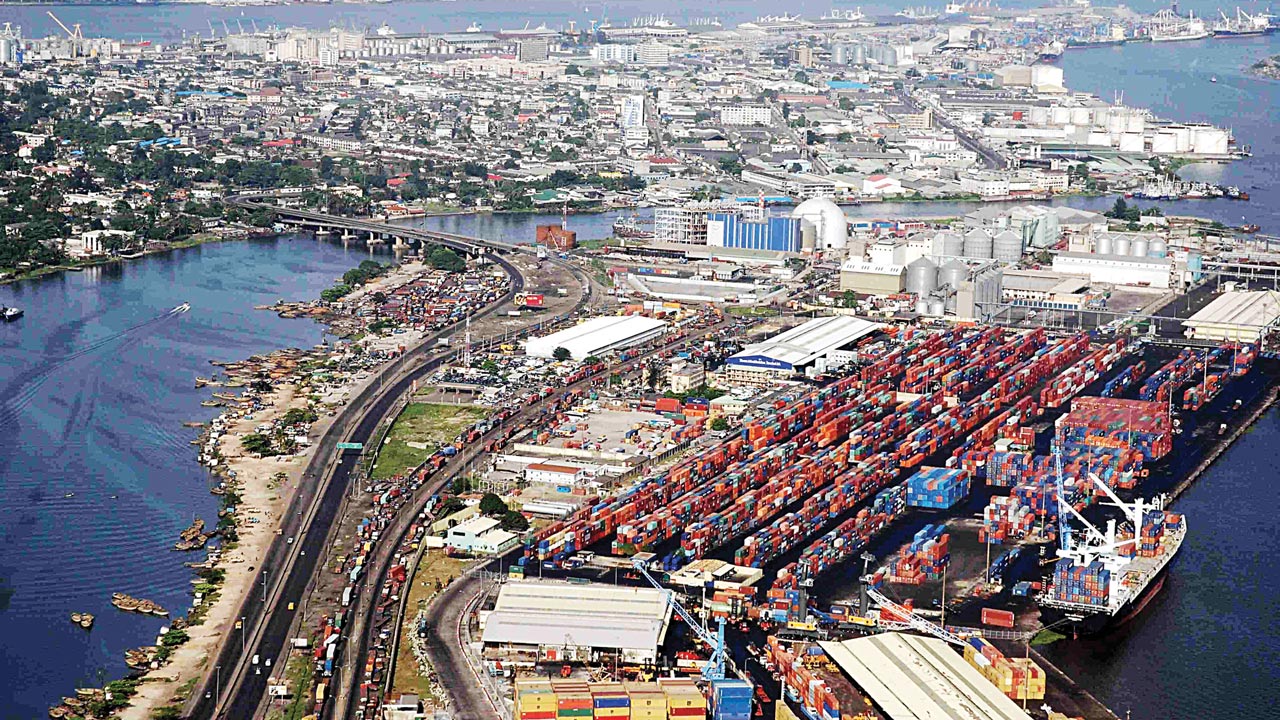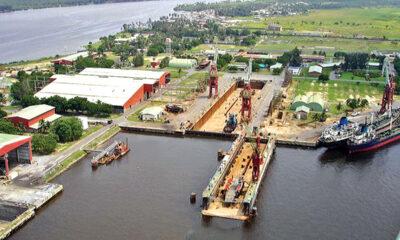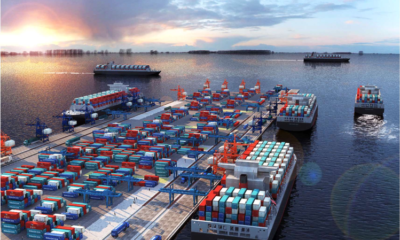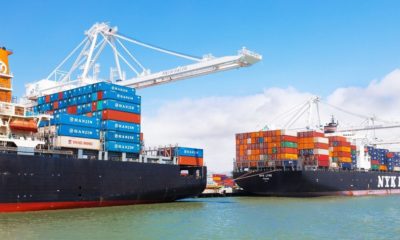- FG Set to Open Fresh Bid for Lagos Container Terminal
The Tin Can 11 container terminal, also known as Lilypond Terminal, is about to be advertised for public bidding.
Lilypond was concessioned in 2006 to AP Moller Terminals.
Our correspondent learnt that the concession arrangement between the Nigerian Ports Authority and APMT, which lasted for 10 years, ended in 2016.
The NPA, which confirmed the planned fresh bid round for the terminal on Monday, said the terminal would soon be open for fresh bidding as soon as the Public Private Partnership department of the agency concluded the paperwork.
“The PPP department is working on the modalities for placing adverts for new bids. Whoever is successful in the bid will be given a concession of the terminal. The terminal is originally designated as an agricultural export terminal,” the Assistant Manager, Corporate and Strategic Communications, NPA, Ibrahim Nasiru, told our correspondent in a telephone chat on Monday.
The Head of Communications, APMT, Mr Austin Fischer, confirmed to our correspondent that the terminal concession to APMT expired in 2016.
He also said the firm had an intention of bidding for the terminal in the new arrangement but that it did not intend to use the facility as a dry port terminal but as an agricultural hub for its new Cold Chain project aimed at preserving perishable goods coming from the north.
Fischer said the terminal was originally designated as an overflow facility for containers coming to APMT in Apapa Port, adding that when the firm later increased the capacity of the Apapa Port from 200,000 Twenty Equivalent Units to one million TEUs, the firm saw no need to use Lilypond Terminal as an overflow facility because the Apapa Port was big enough for all its containers.
The terminal, which is located opposite the busy Ijora Bridge, was used in the past to house containers conveyed by rail from the seaport, stakeholders told our correspondent, saying that the mode of transportation was cheaper and faster and helped ease the traffic gridlock along the port access roads.
The Chairman, Association of Nigerian Licensed Customs Agents, Lilypond Chapter, Femi Olabanji, lamented that the terminal had remained idle since and even transit containers that were to be sent there were not delivered since August.
Our correspondent learnt that Lilypond, which is a bonded terminal, still has a full complement of all the government agencies including Customs, Department of State Services, Port Health Authority and other agencies working there to facilitate cargo clearing process.
Some Customs officers were seen in their offices inside the facility but mostly dosing off on their desks or watching television.
An officer, who spoke to our correspondent on condition of anonymity, said there was not much work to be done at the terminal.
The Controller, NCS Lilypond Command, Mrs Lami Wushishi, declined to grant an interview, saying she was working on reviving the terminal first.
“For now, I am not ready to grant an interview until we have explored all our options. After that, I will call a press briefing,” she told our correspondent.
The Command had, in August, said that it generated N12bn in the first half of 2018, representing 73.4 per cent of its N17bn revenue target for the year.
Its spokesperson, Farouk Abubakar, said that the revenue was generated from tariff collected on the Free Trade Zone.
On the possibility of resuming the movement of containers from the Apapa Port to the Lilypond Terminal, Nasiru said there was no such possibility for now because the place was vacant in the eye of the law in view of the plan to open it for bidding.

 Forex2 weeks ago
Forex2 weeks ago


 Naira1 week ago
Naira1 week ago
 Naira4 weeks ago
Naira4 weeks ago
 Company News4 weeks ago
Company News4 weeks ago




 Naira2 weeks ago
Naira2 weeks ago
 Billionaire Watch1 week ago
Billionaire Watch1 week ago




 Naira3 weeks ago
Naira3 weeks ago




 Naira1 week ago
Naira1 week ago



















